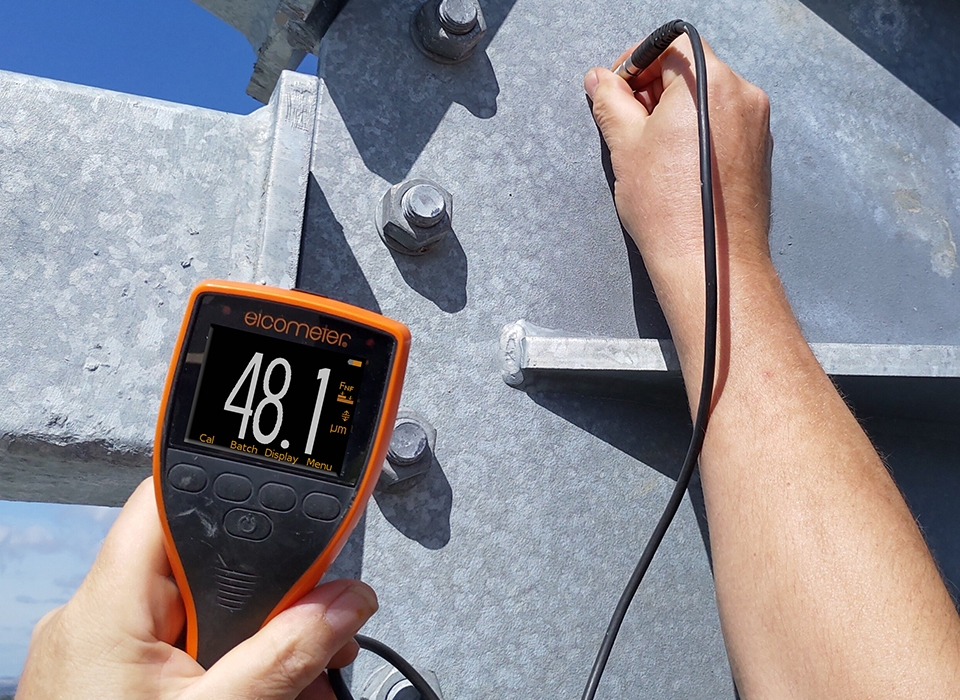Selecting the right coating thickness gauge from Elcometer, a renowned manufacturer of inspection and testing equipment, is crucial for ensuring the quality and performance of protective coatings in various industries. Coating thickness gauges play a significant role in maintaining product integrity, preventing corrosion, and adhering to industry standards and regulations.
Factors to Consider When Choosing Elcometer Coating Thickness Gauge:
- Determine the Type of Coating
The first step in selecting an Elcometer coating thickness gauge is to identify the type of coating you will be measuring. Coatings can be broadly categorized into two types: non-magnetic (e.g., paint, powder coating) and ferrous (e.g., steel, iron) or non-ferrous (e.g., aluminum, copper). Elcometer offers gauges specifically designed for each type, so make sure you choose the appropriate model.
- Consider Substrate Material
The substrate material on which the coating is applied is crucial. Elcometer offers coating thickness gauges that are suitable for both ferrous and non-ferrous substrates. Make sure the gauge you select is compatible with the material you are working with to ensure accurate measurements.
- Range of Coating Thickness
The range of coating thickness you expect to measure is another critical factor. Elcometer provides gauges with varying measurement ranges to suit different applications. If you primarily work with thin coatings, a gauge with a lower measurement range will be suitable. For thicker coatings, choose a gauge with a wider measurement range. It's essential to select a gauge that can measure the full range of coating thicknesses you encounter in your work.
- Measurement Method
Elcometer offers different measurement methods, such as magnetic induction and eddy current. The choice of method depends on your specific application and the type of coating. Magnetic induction gauges are suitable for ferrous substrates, while eddy current gauges are versatile and can measure both ferrous and non-ferrous coatings. Consider the type of materials you work with when choosing the measurement method.
- Accuracy and Precision
The accuracy and precision of the coating thickness gauge are critical to obtaining reliable measurements. Elcometer provides gauges with varying levels of accuracy. Higher accuracy gauges may be required for applications where precision is essential, while standard accuracy gauges may suffice for general measurements.
- Ease of Use and Portability
The user-friendliness of the gauge is vital, especially if it will be used in the field. Elcometer offers a range of coating thickness gauges with different user interfaces and features. Consider factors like display readability, menu navigation, and the gauge's overall ergonomics. Portability is also important, so ensure the gauge is lightweight and easy to handle.
- Data Logging and Connectivity
Many Elcometer coating thickness gauges come equipped with data logging capabilities and connectivity options. Depending on your requirements, you may want a gauge that can store and transfer measurement data. Some models offer Bluetooth or USB connectivity for easy data transfer to a computer or mobile device.
- Calibration and Maintenance
Regular calibration and maintenance are essential for the accuracy and longevity of your gauge. Check if Elcometer provides calibration services or if they offer guidance on self-calibration. Additionally, consider the availability of spare parts and the ease of maintenance to ensure the longevity of your investment.
- Compliance with Standards
If your industry or application requires adherence to specific standards, make sure the Elcometer coating thickness gauge you choose meets those standards. Elcometer provides information on the standards their gauges comply with, so be sure to verify this information before making your selection.
- Cost and Budget
Lastly, consider your budget when choosing a coating thickness gauge. Elcometer offers a wide range of models with varying features and price points. Select a gauge that fits within your budget while meeting your specific measurement needs.
In conclusion, selecting the right Elcometer coating thickness gauge involves a careful assessment of your specific requirements, including the type of coating, substrate material, measurement range, method, accuracy, ease of use, connectivity, maintenance, standards compliance, and budget. By taking these factors into account, you can choose the ideal gauge for your application, ensuring accurate and reliable coating thickness measurements for your projects. Elcometer's reputation for quality and innovation in the field of inspection and testing equipment makes them a trusted choice for professionals in various industries.



